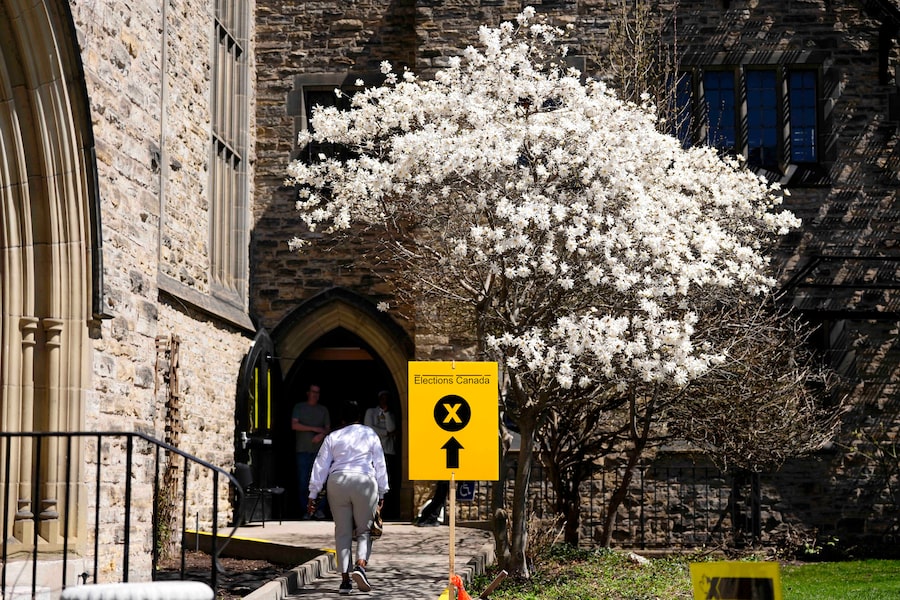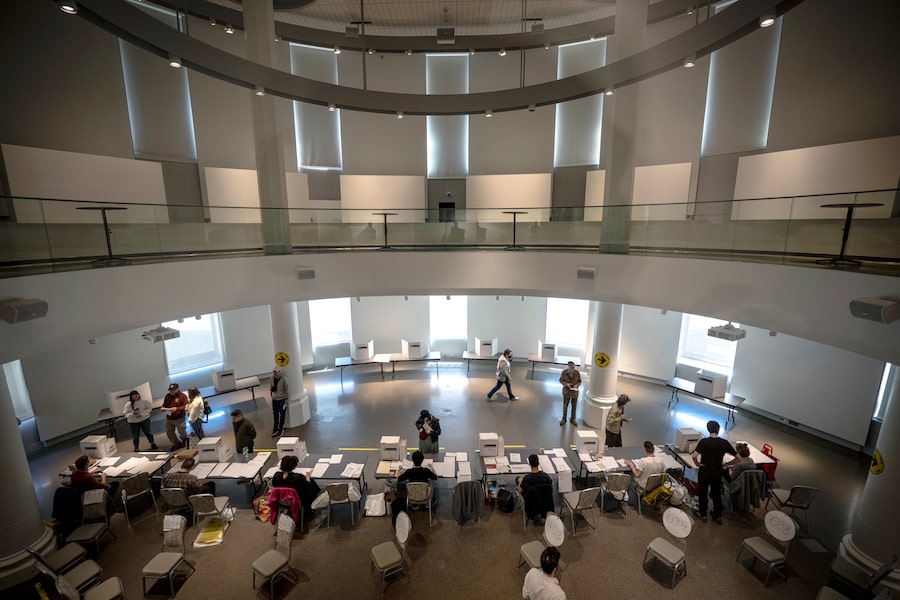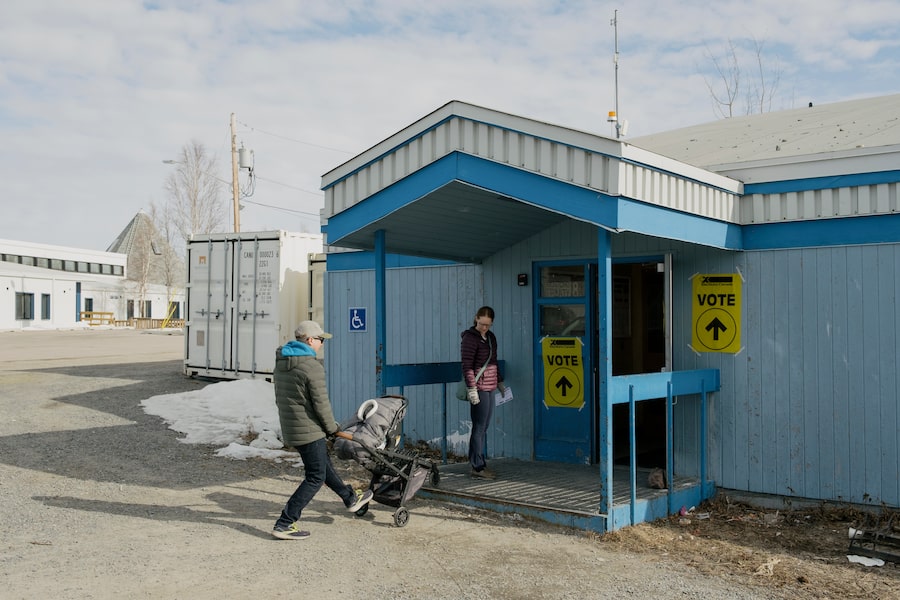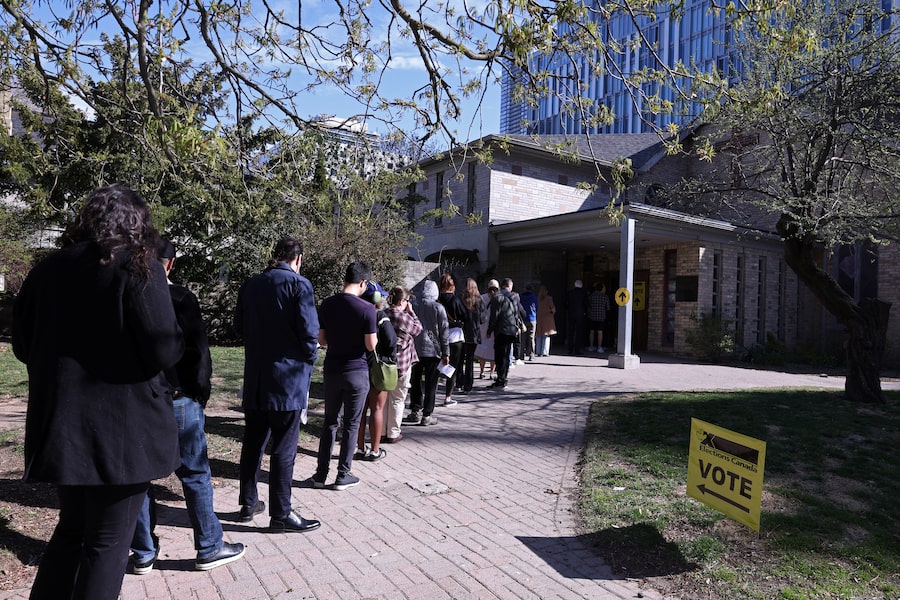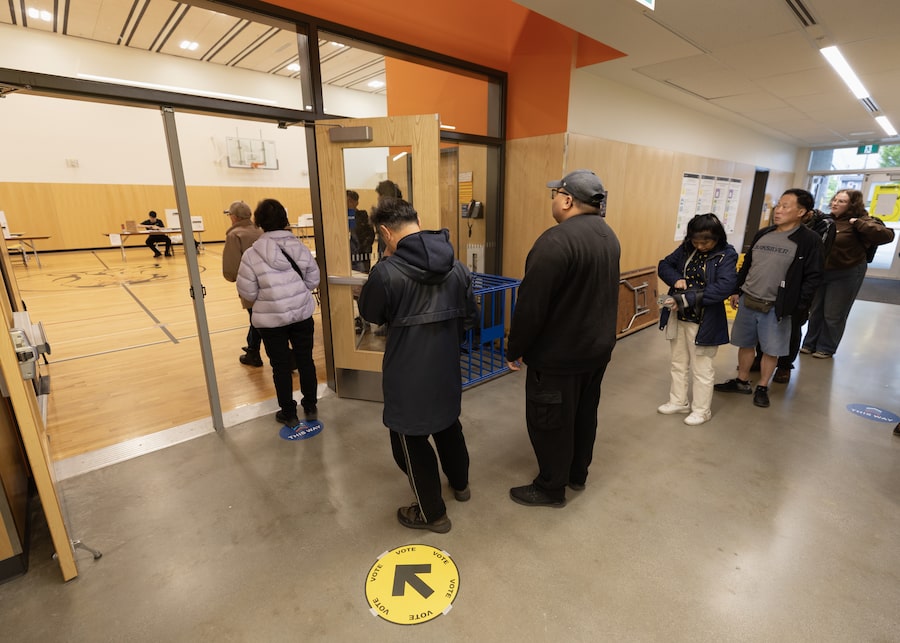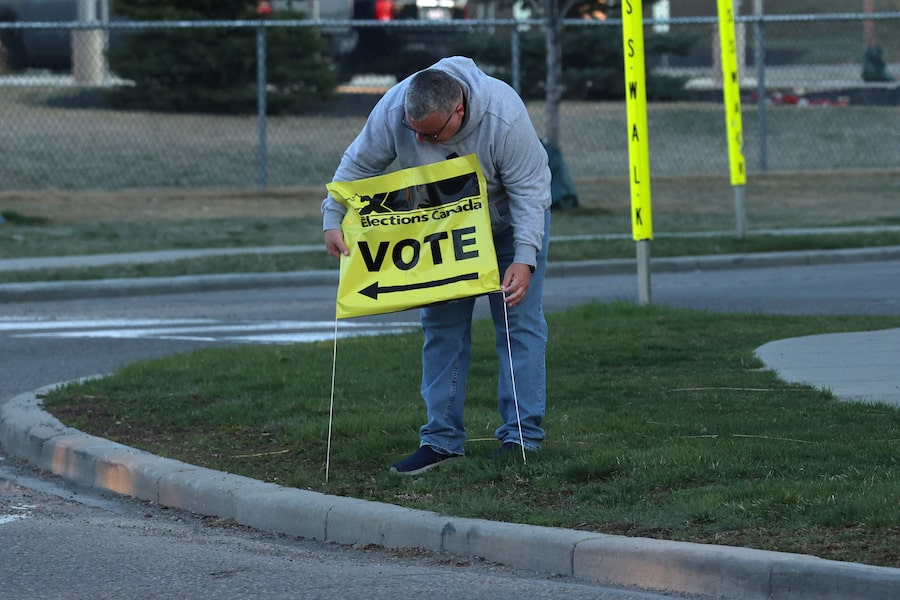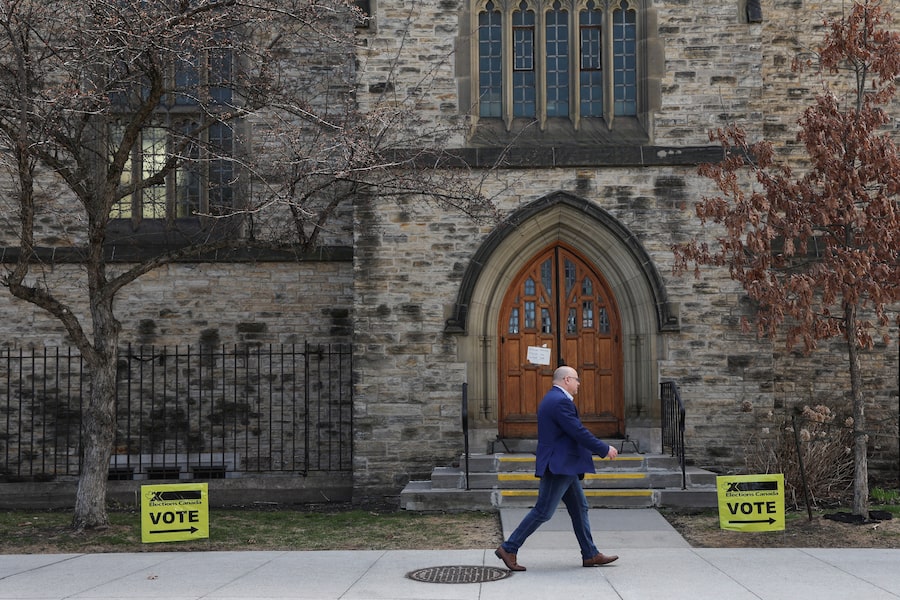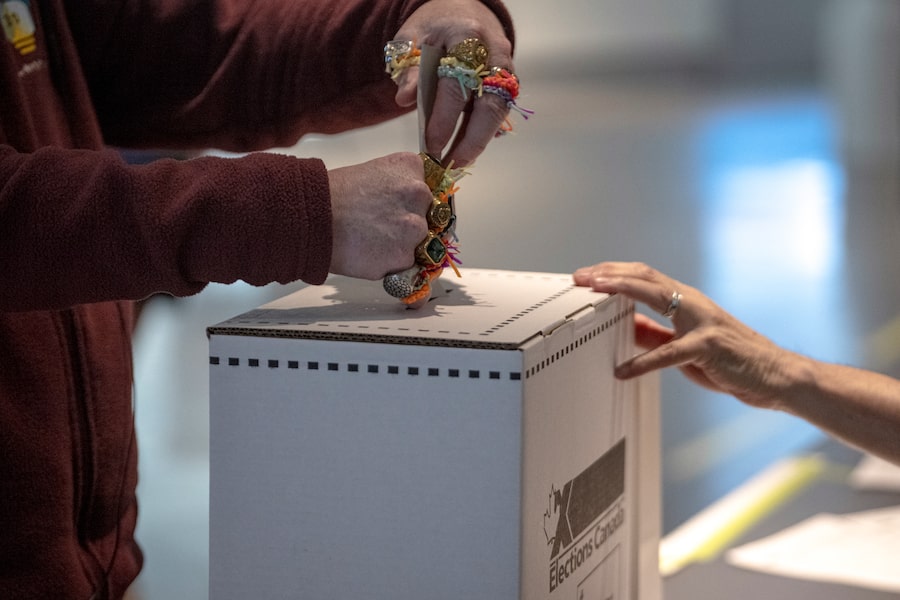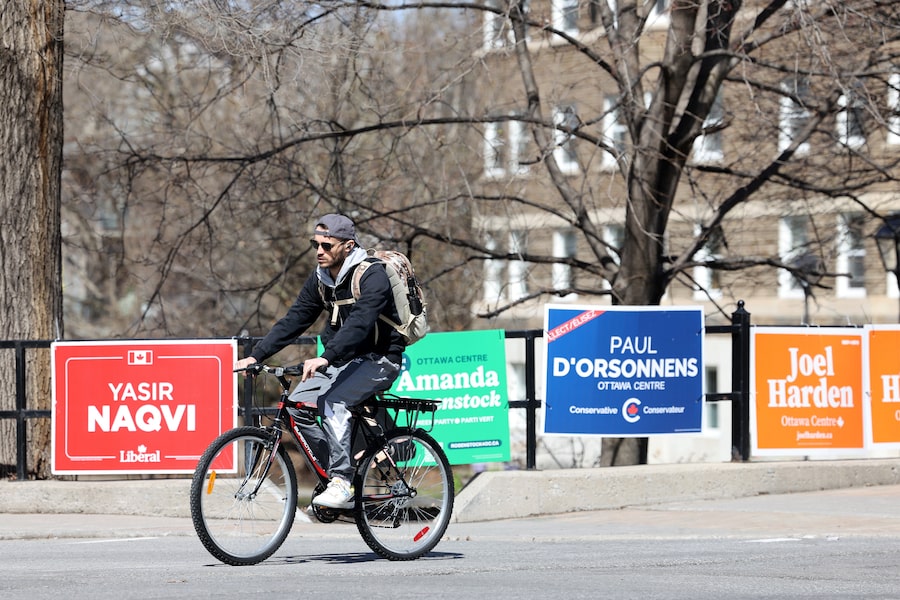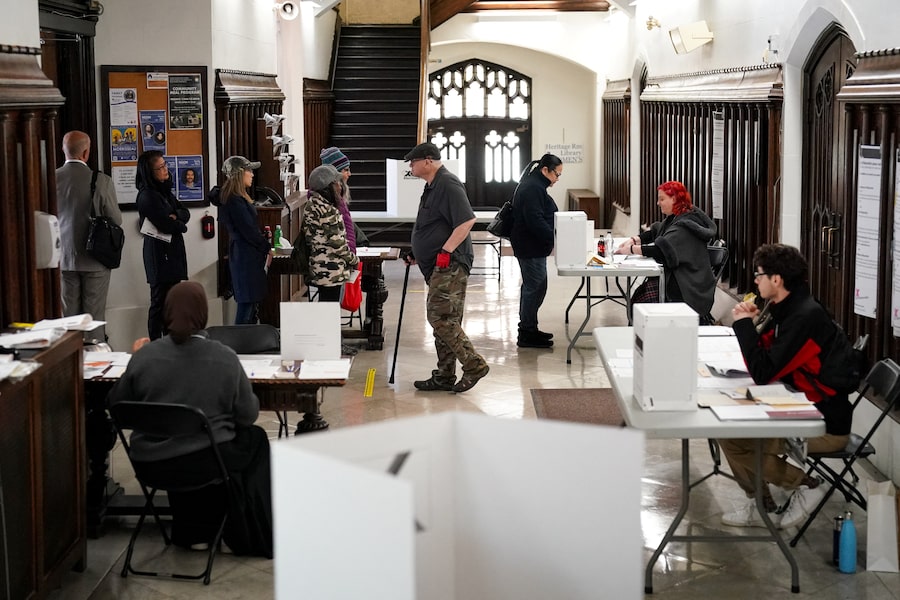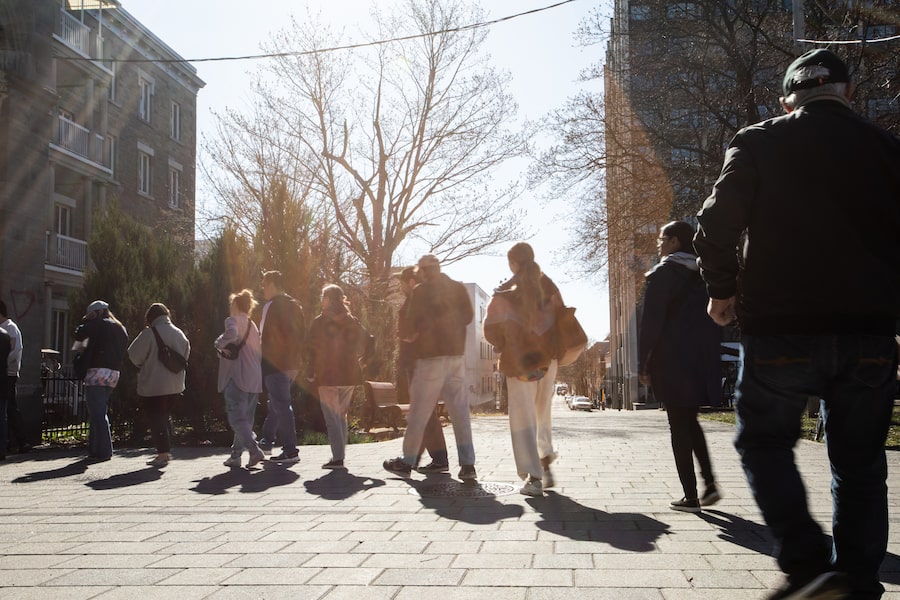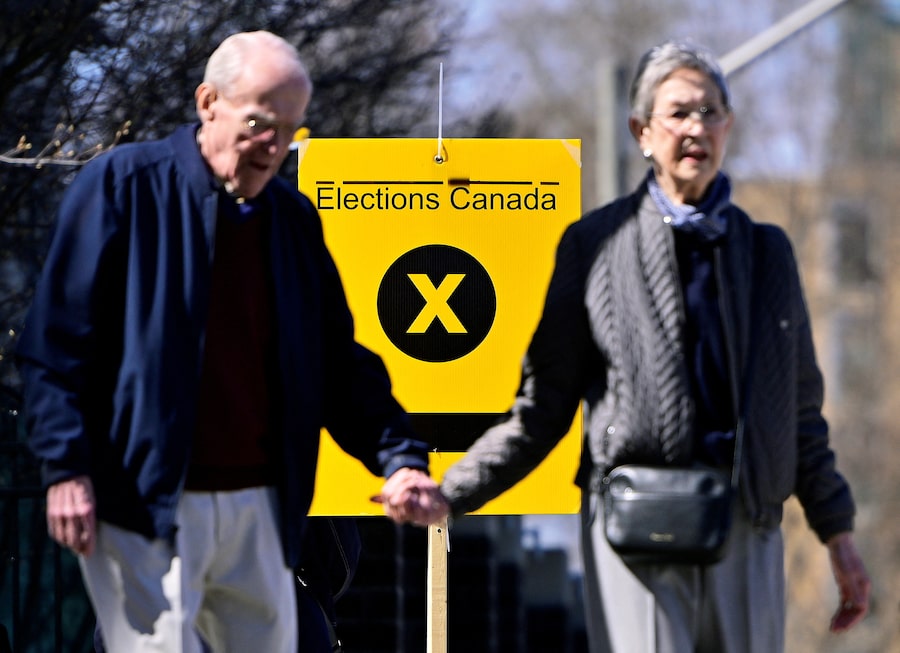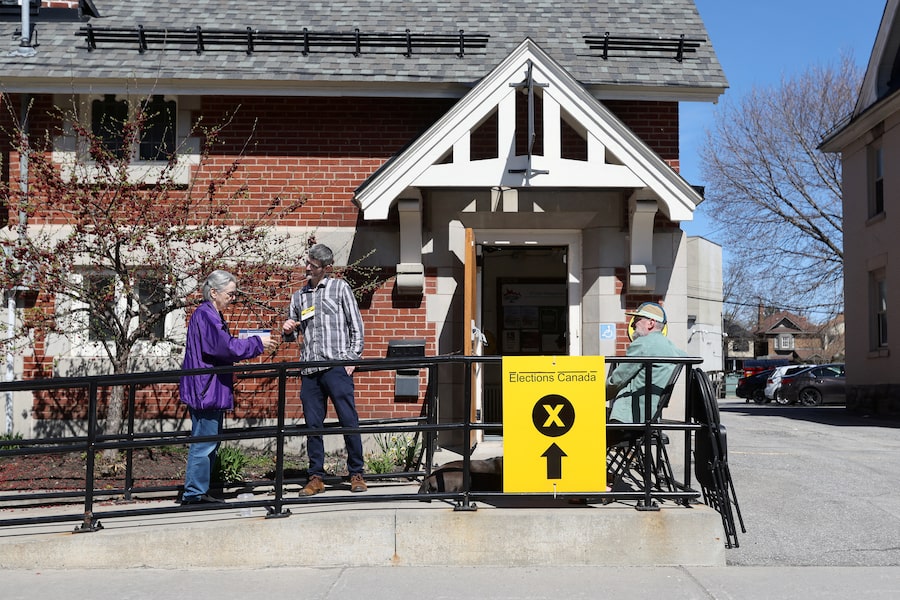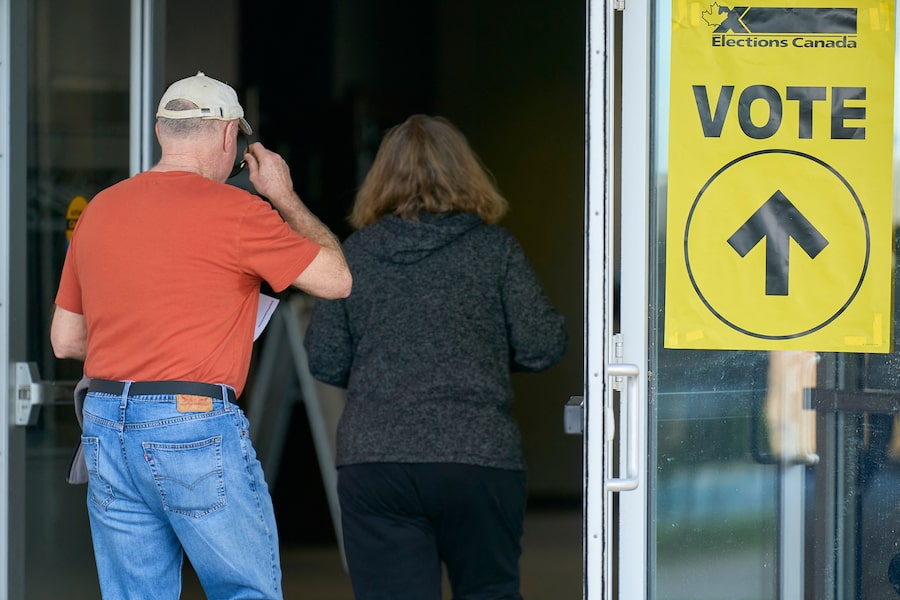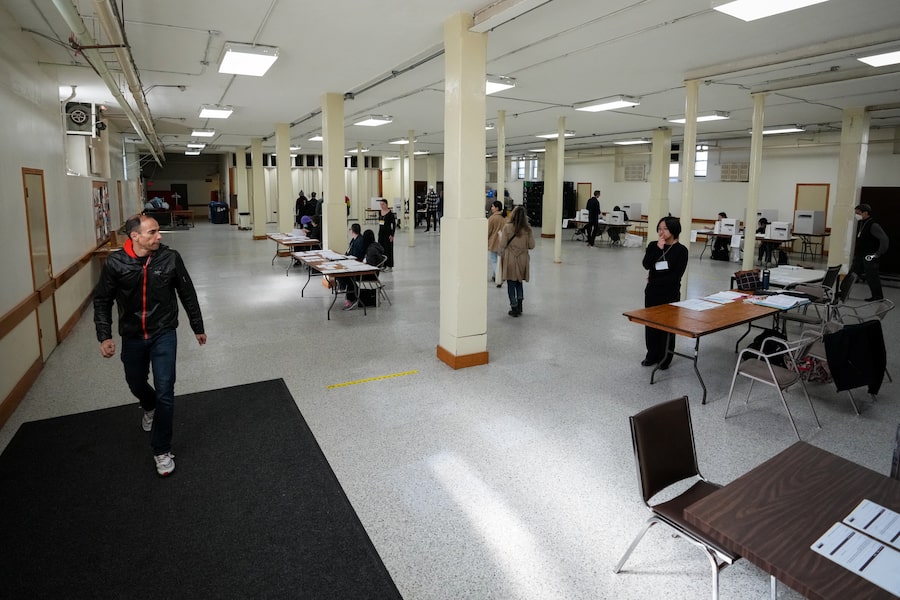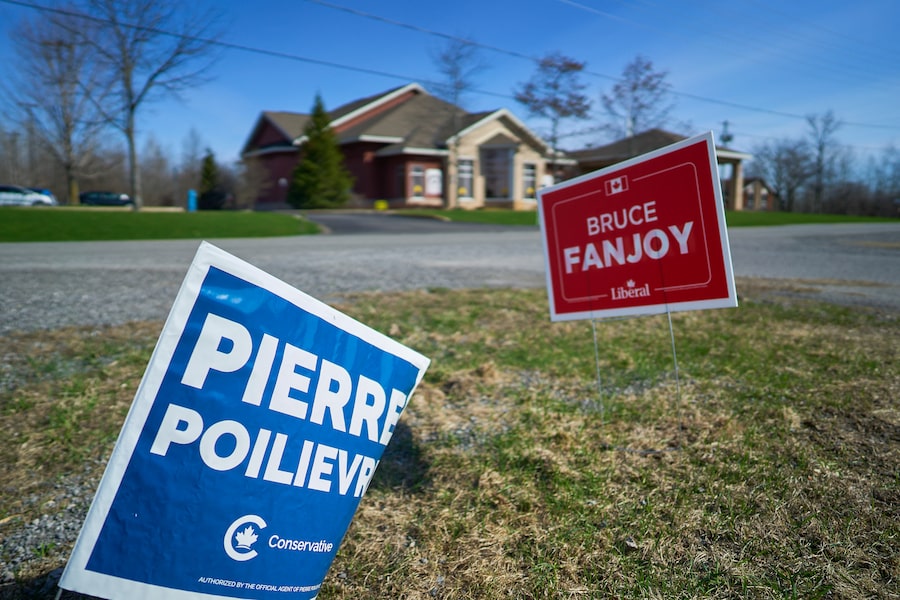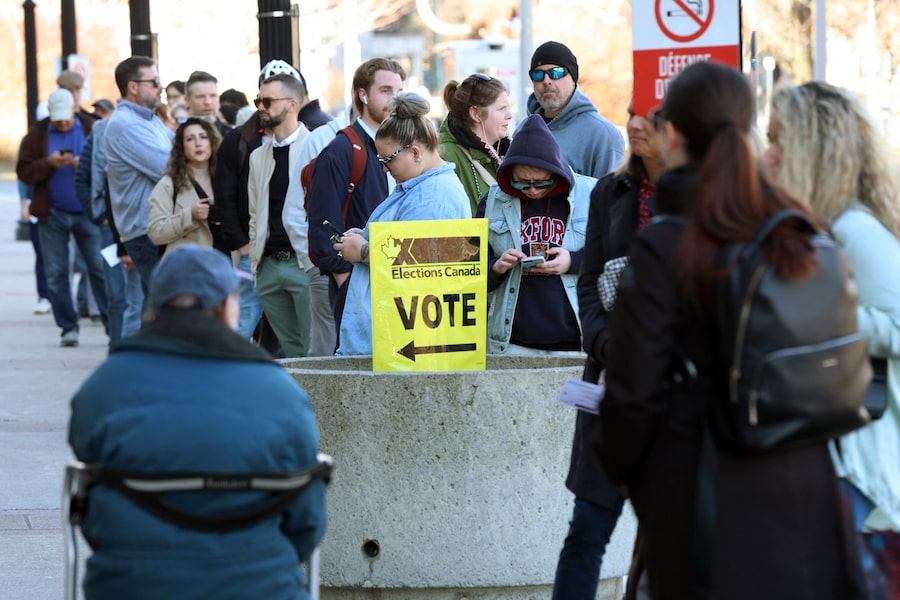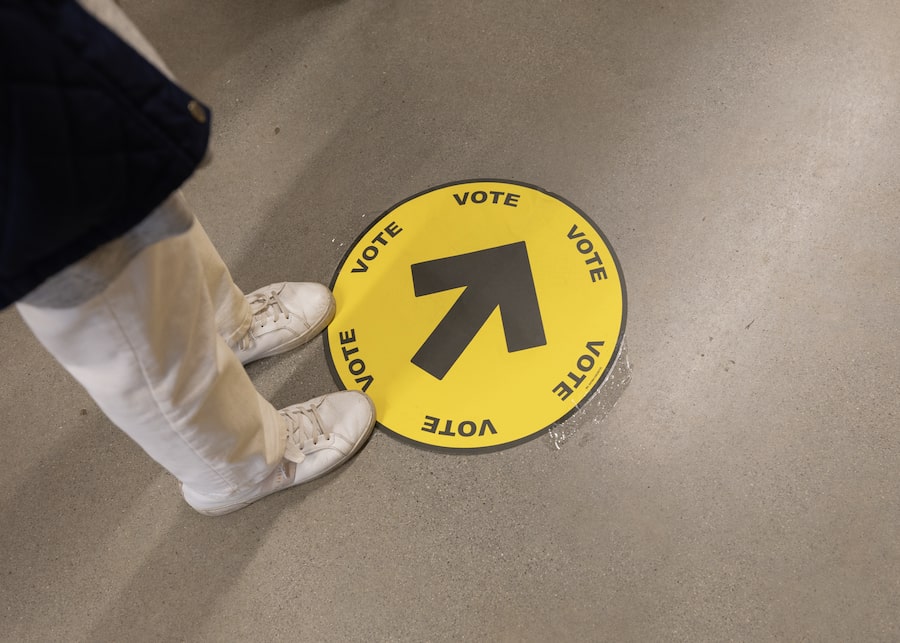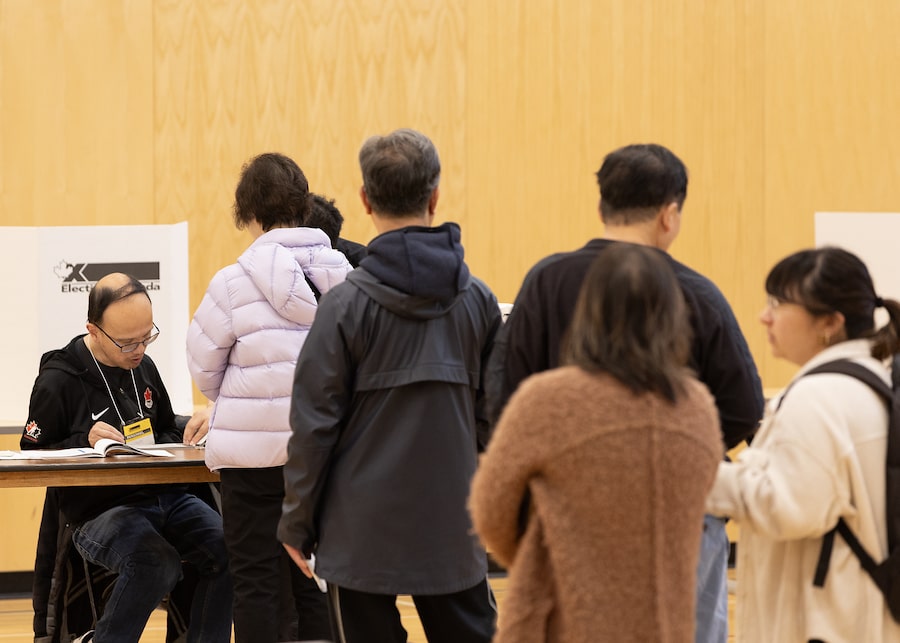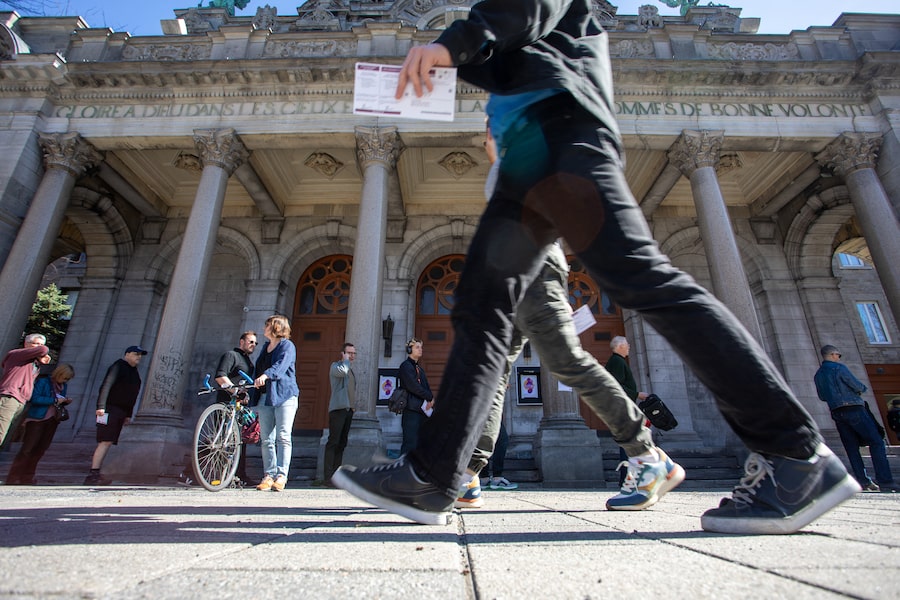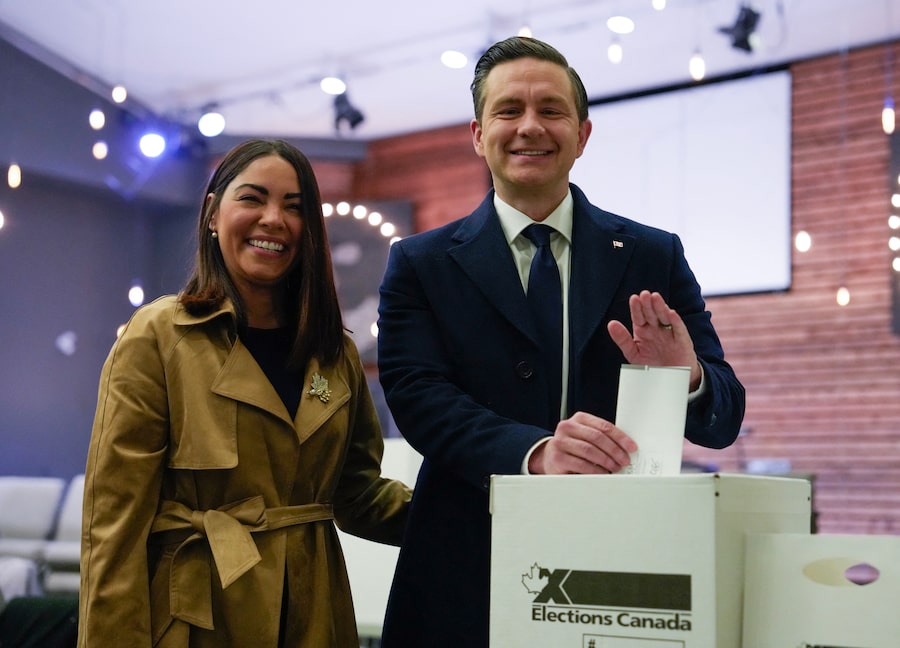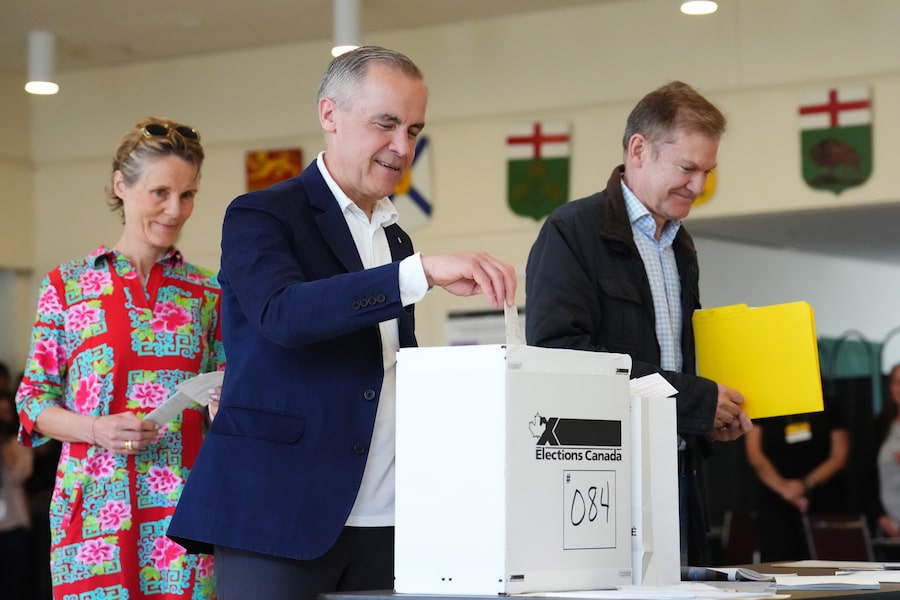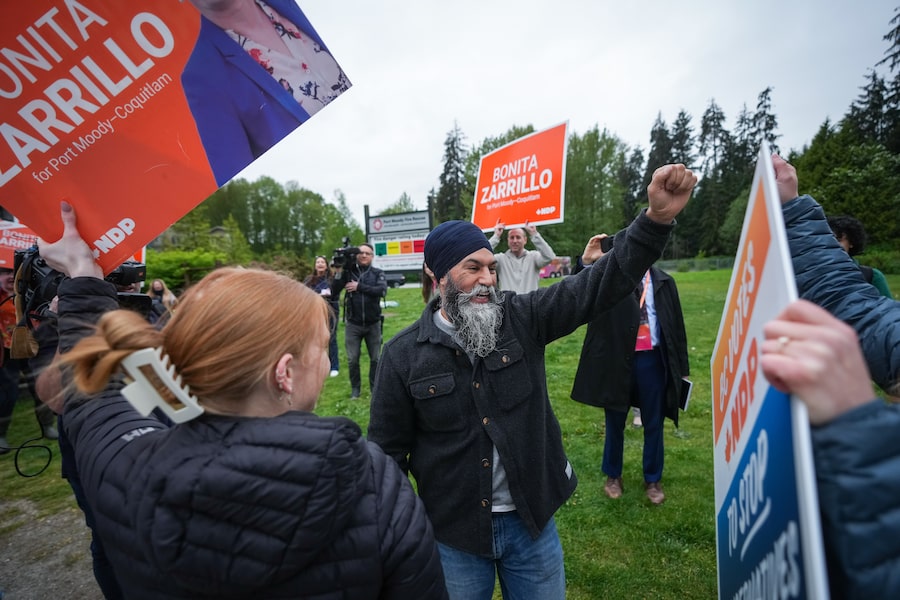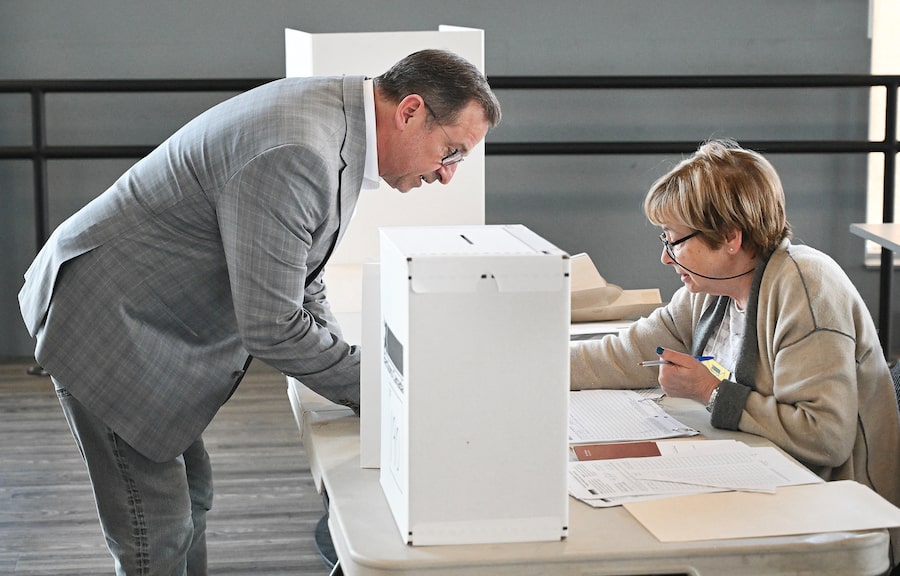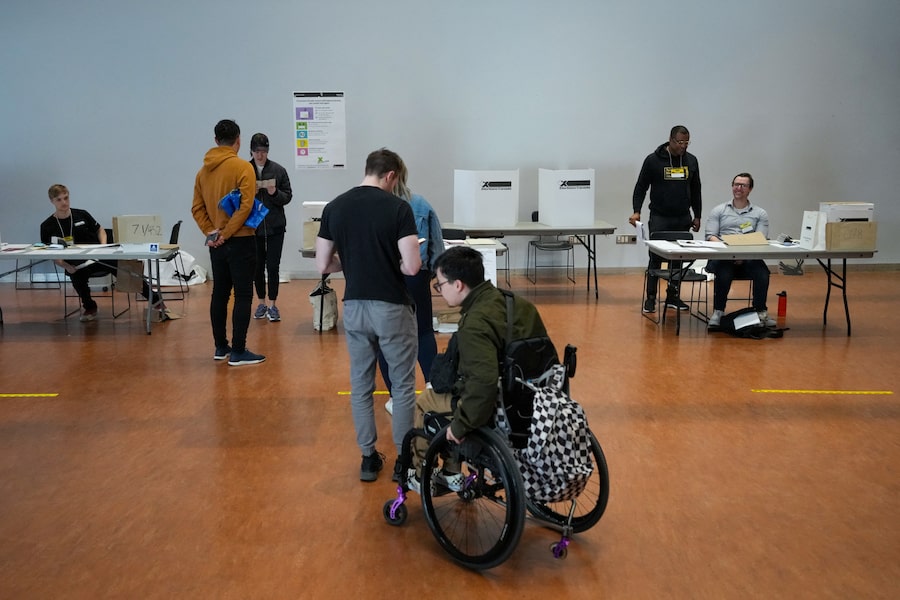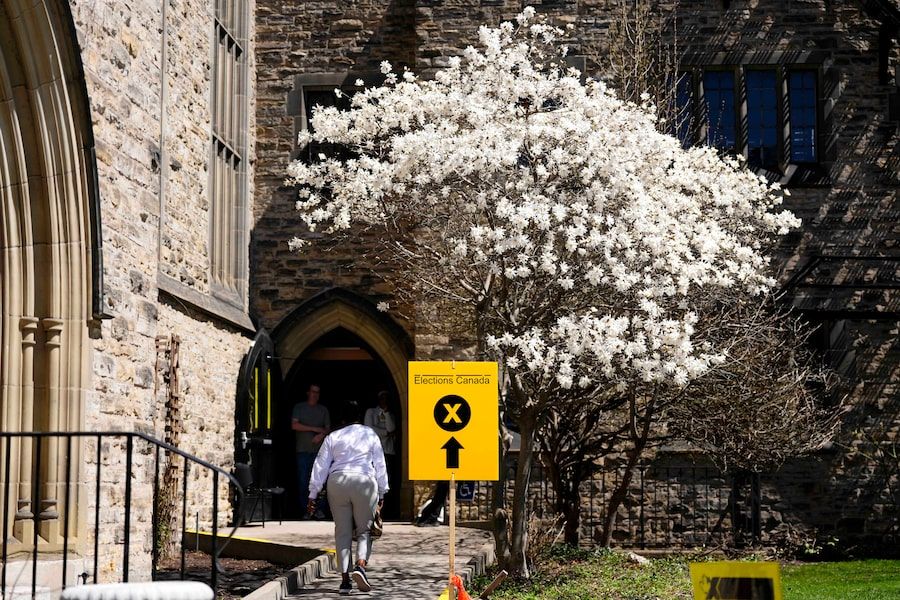
Election 2025 live updates: Polling stations are open across Canada; leaders respond to Trump election comments
04/28/25 15:50
Banking on lower interest rates
– Matt Lundy
Here’s something Canada’s next prime minister can (almost certainly) bank on: lower interest rates.
The consensus on Bay Street and among investors is that the Bank of Canada will lower its policy interest rate – now at 2.75 per cent – several more times this year. The swaps market, which captures investor expectations of monetary policy, suggests the rate will fall to 2 per cent by December.
That would bring relief to many consumers and businesses – and lower the government’s own debt payments. But this rosy scenario is tempered by the wide-ranging effects of the trade war, which will constrain economic growth and push up prices, a phenomenon known as stagflation. And as the Bank of Canada has said many times, it has a limited number of tools to counter the fallout from steep U.S. tariffs.
04/28/25 15:44
The stakes in Battleground Ontario
– Laura Stone
Hi, I’m Laura Stone, a Queen’s Park reporter for The Globe and Mail.
I usually report on provincial politics, but I dabble in federal politics, too. (I’m also one of those rare ones who actually hails from Ottawa!)
Tonight I’ll be helping with our election coverage from The Globe’s headquarters in Toronto.
In particular, I’ll be watching Battleground Ontario, where both the Liberals and Tories are vying for seats in the Greater Toronto Area.
We’ve seen an extraordinary intervention throughout the campaign from those close to Ontario Premier Doug Ford – and even the Premier himself. Kory Teneycke, a Conservative strategist who managed Mr. Ford’s three back-to-back majority-winning campaigns, has criticized Conservative Leader Pierre Poilievre’s electoral strategy as “campaign malpractice.” And Mr. Ford has made no secret of his lack of a relationship with the federal leader.
It will be fascinating to see what happens tonight to the Conservative movement if Mr. Poilievre, who once led by more than 20 points in the polls, fails to lead his party to victory.
04/28/25 15:36
Mark Carney casts his vote
Liberal Leader Mark Carney casts his vote in the Ottawa riding of Nepean on Monday, April 28, 2025.Sean Kilpatrick/The Canadian Press
Liberal Leader Mark Carney has cast his vote in Ottawa.
04/28/25 15:34
Liberals and Conservatives could take up nearly 80% of vote
– Chris Hannay
John Diefenbaker speaking at Ukrainian Concert, Massy Hall in Toronto, January 26, 1964.James Lewcun/The Globe and Mail
If the election results line up with polling, the Conservatives and Liberals will take more than 80 per cent of the vote between them. This is actually quite unusual. There hasn’t been a federal election where the top two parties took that much of the vote since 1958, when John Diefenbaker led the Progressive Conservatives to a historic majority: 54 per cent of the popular vote and 208 (of 265) seats.
Since the 1993 election – which saw big wins for the Bloc Quebecois and Reform parties – Canada has routinely seen four or five parties each win more than 10 per cent of the vote. Not this time.
Polls suggest the Liberals and Conservatives are each hovering around 40-per-cent. That’s usually enough to win big in an election (see Stephen Harper in 2011 or Justin Trudeau in 2015). But for whichever party comes in second, it won’t be enough.
04/28/25 15:01
Whoever wins inherits a shaky economy
– Matt Lundy
Hi, I’m Matt Lundy, The Globe’s economics editor. Whoever wins this election will be taking the reins of an economy on shaky ground, a theme that was highlighted in the Bank of Canada’s quarterly market participants survey, published today. The median estimate from about 30 individuals – a mix of senior economists and strategists involved in Canadian financial markets – is that Canada’s gross domestic product will expand 1 per cent this year, down from a previous estimate of 1.8 per cent. A sizable portion of analysts (22 per cent) actually expect GDP to decline, implying a recession this year. The survey was conducted between March 13 and 20, coinciding with the early days of the Trump administration’s imposition of tariffs on steel and aluminum. Since then, the trade war has escalated.
04/28/25 14:57
Voting is more important than ever, says one Toronto voter
– Dave McGinn
As little as six months ago, Gabriel Seamon was living in Philadelphia. Now, he’s afraid of returning to the U.S. any time soon.
Those fears were very much on the 26-year-old’s mind as he cast his ballot in a high school gymnasium in Toronto’s west end Monday.
“With what’s happened in the United States lately, and how drastically things have changed so fast, it’s more obvious to me than ever that it, like, matters more,” Mr. Seamon, who works in film and television, said of voting.
He worries that the political divisiveness he sees in the U.S. will spread to Canada if a certain federal leader wins the election, although he wouldn’t say who. If any of the other leaders win, he thinks Canada will be fine. Not perfect, but fine.
“Sometimes it’s more of, like, not wanting the worst than looking for something that’s, like, ideal,” he said.
04/28/25 14:38
On the ground in Vancouver where the mood is solemn after a horrific weekend
– Marsha Lederman
A woman lays flowers on Monday, April 28, 2025 at an impromptu memorial near the scene of the fatal vehicle ramming attack over the weekend that killed 11 people at a Filipino street festival in Vancouver. The school that hosted the weekend festival is also a polling station in Monday’s Canadian federal election.Jesse Winter/The Globe and Mail
Hello, I’m Marsha Lederman, a columnist in Vancouver. It is a very solemn day here after the horrific events of the weekend. But people have been voting since 7 a.m. (I just cast my own ballot), and I look forward to weighing in tonight on the results and any other election news.
One thing I want to say at this point is that whatever the results, they may lead to the end of some political careers. No matter what you think of their policies or approaches, people who go into politics generally have the greater good in mind. This is not an easy career or aspiration. So to everyone running in this election: Thank you!
04/28/25 13:56
Elizabeth May casts her ballot in Sidney, B.C.
– The Canadian Press
Green Party co-leader Elizabeth May cast her ballot in Sidney, B.C. She has represented the riding of Saanich—Gulf Islands since 2011.
04/28/25 13:52
New Brunswick is a bellwether this election
– Chris Hannay
Hi, I’m Chris Hannay, reporting from The Globe and Mail’s headquarters in Toronto.
Normally I write about the business of health care, but tonight I’m putting on my old politics hat. I worked in The Globe’s Ottawa bureau for seven years, and you can take the man out of Ottawa, but you can’t take Ottawa out of the man — or something like that.
I’ll be reporting on the election results as they come out. Before we start seeing vote counts, I’ll share some political history and statistics to help put the results in context.
The first results tonight will come from Atlantic Canada and will give us an early look at which way the wind is blowing. In 2015, the Liberals led by Justin Trudeau swept the whole region on the way to winning a majority government. In 2019 and 2021, they lost ground, particularly in rural regions, and had to settle for a minority government.
I’ll be looking at New Brunswick in particular as a bellwether. The Conservatives made major inroads and won four seats in 2021 in that province. If they do well there again, it could mean a happy night for the party.
04/28/25 13:46
On the ground in Toronto where one voter cites Trump and housing as reasons to vote
– Dave McGinn
Voters line up to cast their ballot at a polling station during Canada’s federal election in Toronto on Monday.Wa Lone/Reuters
Hi, I’m Dave McGinn, a reporter for The Globe and Mail. I am in Toronto today talking to people who are casting a ballot.
It took Gillian Bevan just a few minutes to do so at a polling station in the city’s west end at lunchtime Monday.
“It’s important that everyone has a say, especially with everyone on the U.S. right now,” said the 27-year-old actuary.
The threat to Canada’s sovereignty raised by U.S. President Donald Trump’s talk of turning Canada into the 51st state is one reason Ms. Bevan was determined to vote today.
Housing affordability is also top of mind for her.
“Being a young person in Toronto, I’m feeling like I might never afford a house,” she said.
04/28/25 13:25
Singh meets with staff and supporters in Port Moody, B.C.
– The Canadian Press
NDP Leader Jagmeet Singh speaks to volunteers during a sign waving campaign event with Port Moody-Coquitlam NDP candidate Bonita Zarrillo, front left, on election day, in Port Moody, B.C.DARRYL DYCK/The Canadian Press
NDP Leader Jagmeet Singh stopped to talk to campaign staff and volunteers in Port Moody, B.C. alongside NDP incumbent candidate Bonita Zarrillo earlier this morning. The assembled group of a couple dozen people held up NDP signs to attract the eye of drivers on their morning commute.
Mr. Singh talked about the importance of knocking on doors ahead of polls closing to try and get as many voters out as possible.
The NDP leader continued with his campaign message that things like dental care and pharmacare only happened because people chose to send New Democrats to Ottawa.
Mr. Singh is the incumbent candidate in Burnaby Central, which was formally known as Burnaby South before the boundaries were redrawn in the regular Elections Canada boundary review.
Mr. Singh and his wife, Gurkiran Kaur Sidhu, cast their ballots in early voting in Burnaby, B.C., on April 18.
04/28/25 13:18
The Globe spent this election travelling the country, in search of the Canadian public mood
– Eric Andrew-Gee
Canadian military veteran Hamilton White, left, and his wife Andrea Boyd-White of Antigonish county, NS, finish up lunch at the Fleur-de-Lis diner in Port Hawkesbury, NS, on March 13, 2025.Steve Wadden/The Globe and Mail
Postcards are for clichés: the CN Tower, Lake Louise, a Maritime lighthouse. They’re pretty, and don’t tell you much.
In the past month, The Globe has set out to write a different kind of Canadian postcard, visiting cities and towns in sometimes-overlooked corners of the country and producing dispatches that show the place in the round, its underbelly as well as its pretty face.
We’re in a time of national soul-searching, prompted by annexation threats and a federal election, and this series has been a part of that process. Reporters based in Vancouver, Edmonton, Winnipeg, Thunder Bay, Toronto, Montreal and Halifax all hit the road, sometimes returning to their home towns, sometimes visiting places they had never been before.
Read stories from our East to West postcard series here.
04/28/25 12:33
Atlantic Canada voters appear poised to widely support federal Liberals
– The Canadian Press
Earle Reid, the first voter at the polling station on the day of the election, in Dildo, Newfoundland.Greg Locke/Reuters
Voters in Canada’s four Atlantic provinces are expected to deliver a stay-the-course message to the country’s governing Liberals today as voting gets underway on the East Coast.
The party has dominated the region since 2015 when it won all 32 seats, but its grip on power slipped over the years under Justin Trudeau’s leadership.
When Liberal Leader Mark Carney called the election last month, his party held 23 seats, the Conservatives had eight, and one seat — a Halifax riding previously held by a Liberal — was vacant.
The latest polls were suggesting strong support for Liberals across the Atlantic region, but the Conservatives — led by Pierre Poilievre — were expected to hold on to some of their seats, while the New Democrats under Jagmeet Singh could be shut out again.
Pundits say Poilievre’s aggressive, populist style of leadership has been a tough sell in Atlantic Canada, where traditional Progressive Conservatives — including Nova Scotia Premier Tim Houston — have largely shunned the federal Tory leader, who visited Nova Scotia only once during the campaign.
Meanwhile, Carney’s focus on dealing with the economic chaos unleashed by U.S. President Donald Trump has paid dividends for the Liberals, whose approval ratings were higher in Atlantic Canada than in any other region.
04/28/25 11:59
Voters in Windsor, Ont., redirected after fire at polling station
– The Canadian Press
Voters are being redirected to a new location to cast their ballots in Windsor, Ont., after a fire closed down a recreation centre that was serving as a federal election polling station.
The Windsor fire department says crews responded to a fire on the roof of the WFCU Centre on Monday morning and everyone inside was evacuated.
The fire service says Elections Canada has moved the polling station to St. Joseph’s Catholic High School nearby.
It says the fire was under control as of 11 a.m., and a fire investigator will go to the WFCU Centre to look into the cause of the blaze.
Elections Canada was still listing the centre as a voting location in Monday’s federal election just before noon.
The elections agency did not immediately respond to a request for more information.
04/28/25 11:43
Blanchet casts his vote at Quebec polling station
– The Canadian Press
Bloc Québécois Leader Yves-François Blanchet votes on federal election day in Chambly, Que.GRAHAM HUGHES/AFP/Getty Images
Bloc Québécois Leader Yves-François Blanchet cast a ballot in Beloeil, Que. before meeting with reporters.
Mr. Blanchet says he’s not so much nervous as he is impatient for the results to start coming in later today and to see if the party meets its objectives for this election – which he wouldn’t divulge. His party went into the campaign with 33 seats.
Unlike his opponents, Mr. Blanchet has not taken to describing the federal election as being the “most consequential” and says it’s an important election like any other and should not be taken lightly.
He also urged Quebecers to get out and vote.
04/28/25 11:36
The key ridings to watch
– Reuters
A car enters the parking lot at a polling place on federal election day in Ottawa, Canada on Monday.GEOFF ROBINS/AFP/Getty Images
Burnaby Central, B.C.
The result here could help show whether the NDP have a future. Burnaby Central is a new riding, replacing Burnaby South. This was held by NDP Leader Jagmeet Singh. Polls suggest Mr. Singh, who is the NDP candidate, is running third in the new riding as left-leaning voters coalesce behind the Liberals.
Aurora—Oak Ridges—Richmond Hill, Ont.
Key to any victory is the Golden Horseshoe, a riding-rich crescent that sits on Lake Ontario and includes Toronto as well as other cities. The Conservatives held Aurora—Oak Ridges—Richmond Hill from 2018 to 2021. If they are to take advantage of unhappiness over living costs, immigration and a housing crisis – factors that dominated politics before U.S. President Donald Trump began threatening tariffs and annexation – the riding is a key target.
Trois-Rivieres, Que.
Any party wishing to win power must also perform well in Quebec, which has the second-largest number of seats in the House of Commons. It is the only province with its own party, Bloc Québécois, which is seeking independence for the province and whose fortunes can swing wildly. Trois-Rivieres is one of several in Quebec where three (and sometimes four parties) contend for the vote. The 2021 result was tight, with the Bloc winning by just 83 votes of the 58,110 that were cast.
Edmonton Southeast, Alta.
The Liberals have traditionally fared poorly in the western oil-producing province of Alberta, thanks to former Liberal Prime Minister Pierre Trudeau, who introduced unpopular energy policies in the 1980s. Some of this enmity rubbed off on his son, former Prime Minister Justin Trudeau, who at best only won a handful of Alberta seats. Now that Justin Trudeau is gone, the Liberals have a chance to repair their reputation. Ex-Liberal cabinet minister Amarjeet Sohi is running in the new riding of Edmonton Southeast, and if he wins, it will be a sign the party can succeed even in hostile territory.
Cumberland-Colchester, N.S.
The four provinces in Atlantic Canada, which contain a total of 32 seats and report their results first, often offer an early indication as to how the election might go. The region is politically volatile and results can swing broadly. The Liberals won Cumberland-Colchester by a few hundred votes in 2019 but lost it to the Conservatives in 2021.
Burlington, Ont.
This Ontario riding southwest of Toronto is the ultimate in Canadian bellwethers, having elected a legislator from the winning party for 12 consecutive elections going back to 1984.
04/28/25 11:24
Elections Canada says it’s managing long ballot with 90 candidates challenging Poilievre
– The Canadian Press
Conservative Leader Pierre Poilievre is being challenged by 90 other candidates on the ballot.
Poilievre is in a tight race against Liberal candidate Bruce Fanjoy, who has been waging an intense ground battle in the riding. But a protest group called the Longest Ballot Committee has convinced dozens of other candidates to register to run as Independents in Poilievre’s Ottawa-Carleton riding, in addition to the usual main party candidates.
The protest group opposes the first-past-the-post voting system and is seeking to build support for electoral reform.
Elections Canada says it has measures in place to help people vote in the Ontario riding. For example, the ballot for the Carleton electoral district is larger and has two columns with candidate names, which are listed alphabetically.
A large-print list of candidates will also be available and a braille template has been modified to fit the two-column ballot.
To maintain the integrity and security of the ballot, the agency says poll workers will be trained in a new method of folding the large ballot “so as to maintain the secrecy of the vote.”
It also says the “unusual form and size” of the ballot requires that experienced election officers be assigned to polling stations.
04/28/25 11:08
Poilievre casts his ballot at a polling station in Ottawa area
– The Canadian Press
Conservative Leader Pierre Poilievre and his wife Anaida Poilievre make their way to cast their votes in the federal election on Monday in Ottawa.Adrian Wyld/The Canadian Press
Conservative Leader Pierre Poilievre cast his ballot alongside his wife, Anaida Poilievre, at a polling station in Ottawa.
He remarked, “look at the size of the ballot” when he walked up to the voting booth. Mr. Poilievre’s riding of Carleton was targeted by a protest group filling the slate up with independent candidates to inflate the physical size of ballots and delay the count.
As he placed his ballot in the box, Mr. Poilievre told the gathered cameras: “Alright everyone, get out to vote — for a change,” echoing his slogan from the campaign.
04/28/25 11:04
From taxes to housing, here’s what each major party is promising for your finances
– Julia Stratton
Election Personal Finance Platform Tracker 2025Photo illustration The globe and mail. Source images Getty Images/Getty Images
As Canadian voters head to the polls, many are thinking about how their personal finances are being affected by affordability challenges in recent years and now a global trade war.
From taxes to housing, here’s what you need to know about each party’s platform and where they stand on the issues that affect Canadians’ pocketbooks the most.
Read our platform guide on what each party is promising for your finances.
04/28/25 10:37
Poilievre, Carney, Singh respond to Trump comments
– Globe staff
After U.S. President Donald Trump posted on Truth Social about Canada’s election, Conservative Leader Pierre Poilievre responded on X, writing, “President Trump, stay out of our election. The only people who will decide the future of Canada are Canadians at the ballot box.
Canada will always be proud, sovereign and independent and we will NEVER be the 51st state.”
Liberal Leader Mark Carney also posted a video on X shortly afterward that didn’t directly mention Mr. Trump but stated: “This is Canada — and we decide what happens here.”
NDP Leader Jagmeet Singh responded on X to Mr. Trump’s comments. “He doesn’t choose our future. We do,” he wrote. “Every New Democrat you send to Ottawa will stand up for our country.”
04/28/25 10:12
The system created to help homeless Canadians vote
– Ian Bailey, Andrea Woo
Scott Rodger had housing in Quebec when he voted in the last federal election, but now, in Ottawa, he doesn’t. Nor does he have ID that meet Elections Canada’s requirements.Spencer Colby/The Globe and Mail
Elections Canada says it has been tackling the issue of homeless voters. “Some people face greater barriers than others when it comes to participating in elections,” Chief Electoral Officer Stéphane Perrault said in a statement. “It’s important for us to understand what those barriers are and work to reduce them.”
Homeless people who want to vote have several options. They need to present two pieces of ID, one of which can be a letter provided by an establishment that provides food, housing or social services. If they have neither, they can come to the polling station with someone who can vouch for them.
George Cicken has been staying with his mother in Vancouver since losing his home in Haida Gwaii in early 2024.
“It was a bit of a hassle getting registered but not too bad,” he said. “I got a bill with my name on it and my mother’s address, as well as an ID that I had from Haida Gwaii.”
Mr. Cicken noted the narrow margin of victory in B.C.’s provincial election last fall, saying it proved that every vote counts.
04/28/25 10:00
Polls are now open across Canada
– The Canadian Press
Polling stations are now open across the country as voters in British Columbia and Yukon join other Canadians heading to the polls.
04/28/25 09:47
TSX opens higher as Canada heads to polls
– Reuters
Canada’s main stock index opened higher on Monday, as investors prepared for the outcome of the general election in the backdrop of U.S. President Donald Trump’s trade war.
At 9:31 a.m. ET, the Toronto Stock Exchange’s S&P/TSX composite index was up 0.16 per cent at 24,751.01 points.
04/28/25 09:32
How Indigenous groups have been working to get the vote out ahead of the federal election
– Willow Fiddler
Indigenous groups across Canada are trying through campaigns to encourage First Nations residents to cast ballots in order to have a say on issues that directly affect them. The Assembly of First Nations has also worked with Elections Canada to compile several resources for communities to assist voters, including materials in 13 Indigenous languages.
The remoteness of many Indigenous communities is a challenge to getting out the vote and it can be more difficult to hire and train election staff in these areas. But although other barriers Indigenous voters commonly face, such as proving identities and addresses, have improved since 2015 according to Elections Canada, the population is still less likely to turn out than non- Indigenous voters.
Kent McDonald hopes he will be able to vote on Monday after experiencing significant barriers in the 2021 federal election that led him to not cast a ballot.
The math and science teacher living on Little Red River Cree Nation, a semiremote Northern Alberta reserve about 800 kilometres north of Edmonton comprised of three communities, said he had planned to vote during his break at school where a polling station was supposed to be set up.
“We got to school that day and found out that no one had talked to the school about setting up a polling station there,” Mr. McDonald told The Globe and Mail.
Instead, he and members of his community of Fox Lake would have had to travel to a neighbouring community 40 kilometres away, a trip he said would involve driving through 15-centimetre mud ruts and with two-hour wait times each way for the barge that could only take two cars at a time.
Elections Canada has been working to remedy some of the problems from 2021 in Little Red River ahead of Monday’s vote, said Leanne Nyirfa, the agency’s regional media adviser for Alberta. She said the agency has been working with the Fox Lake band for several months and confirmed a polling station will be set up at the Jean-Baptiste Sewepagaham High School, where Mr. McDonald works.
04/28/25 09:30
Polls are now open in most of Canada
– The Canadian Press
Polls are now open in a majority of provinces and territories.
Voters in Alberta, Saskatchewan, Manitoba, Ontario, Quebec, Northwest Territories and Nunavut can cast their ballots for the next 12 hours.
04/28/25 09:14
Trump weighs in on election day
– The Canadian Press
U.S. President Donald Trump weighed in on Canada’s election today, repeating his claim that Canada should become a U.S. state.
Mr. Trump’s tariffs and repeated threats of annexation have become a central issue ahead of today’s vote.
The president posted on his Truth Social platform that Canada could become a 51st state without “an artificially drawn line from many years ago.”
Mr. Trump says Canadians should “elect the man who has the strength and wisdom to cut your taxes in half, increase your military power, for free, to the highest level in the World.”
Secretary of State Marco Rubio said Sunday that the U.S. administration will work with the new leadership of Canada.
He said there are areas for cooperation but that Mr. Trump is not happy with trade.
04/28/25 09:07
East to West: What matters to rural Canada in this election
It’s impossible to get a full picture of a country as big and diverse as Canada, but audio journalist Kasia Mychajlowycz set out on a road trip to ask as many people as she could: What’s the most important issue to you in this election campaign and why?
The answers ranged from affordability to health care, trust in government, reconciliation, tariffs and more. But in more than 35 interviews in a dozen places over seven provinces, people went beyond politics, retelling the joys, challenges and tragedies that make up all our lives.
Listen to the first instalment of East to West: voices in Atlantic Canada ahead of the election.
04/28/25 08:38
Where the federal party leaders are on Election Day
– The Canadian Press
From left to right: Bloc Quebecois Leader Yves-Francois Blanchet, NDP Leader Jagmeet Singh, Liberal Leader Mark Carney, Conservative Leader Pierre Poilievre and co-leader of the Green Party Elizabeth May.The Canadian Press
Here’s where the leaders of Canada’s main political parties are on Election Day.
Liberal Leader Mark Carney
Mr. Carney will spend election night in Ottawa. He is expected to vote in the city on election day and will host an election night party that’s expected to begin at 9:30 p.m.
Conservative Leader Pierre Poilievre
No public events scheduled.
NDP Leader Jagmeet Singh
Mr. Singh is scheduled to spend the day in British Columbia. He is expected to hold a campaign event at 8 a.m. in Port Moody, and will later travel to Burnaby to attend a Day of Mourning event. At 7 p.m., Singh will attend his election night event in Burnaby.
Bloc Québécois Leader Yves-François Blanchet
Mr. Blanchet is expected to spend the morning travelling around Quebec where he will meet with local candidates. He is expected to vote in Chambly, Que., around 10 a.m. Later, he is set to travel to Montreal where his party will hold an election night event at a hotel starting at 7 p.m.
Green Party Co-Leaders Elizabeth May and Jonathan Pedneault
Ms. May is expected to spend election day in B.C., where she will cast her ballot and spend the day with local supporters. She will host her election night watch party in Victoria, which is scheduled to begin at 6 p.m.
Mr. Pedneault will spend the day in his Montreal riding and will host an election party in Montreal starting at 8 p.m.
04/28/25 08:18
Mail-in votes are matching their pandemic peak, but snap election puts international voters on tight deadline
– Kobe Tulloch
A eligible voter holds a voter information card after it arrived in the mail in a Carleton Place, Ont., Friday, April 11, 2025.Sean Kilpatrick/The Canadian Press
Leonard Belsher is his 87-year-old mother’s primary caregiver. When the federal election was called on short notice, they had already made travel plans for election day. Worried about his mother waiting in long lines at advance polls, which ended up seeing a record-breaking 7.3 million voters, he inquired about voting by mail.
Mr. Belsher, of Shawville, Que., is one of many Canadians who opted for a mail-in ballot.
Elections Canada has received 1,007,569 special ballots from voters thus far and says the tally is quickly approaching the record 1.17 million ballots received in the 2021 federal election. There are still 248,000 ballots yet to be returned, so it’s possible this election will break the pandemic high.
But the short election cycle that has more Canadians voting by mail may also be leaving the ballots of Canadians living abroad in danger of going uncounted.
A record-breaking 101,694 voting kits have been sent out to Canadians living abroad in this election, nearly double the 55,000 that were sent out in both 2019 and 2021. About 20,000 of those new international voters currently reside in the U.S.
As of Saturday, only one-third of the issued international ballots have been returned to Elections Canada – thousands fewer than were received in the previous two elections.
Read more about the international ballots sent out during this election campaign.
04/28/25 08:06
A voter’s guide to Canada’s (potential) economic future
– Jason Kirby, Nojoud Al Mallees and Mark Rendell
Illustration by Sam Island
If the federal election were being fought in a domestic vacuum, without the casual threats of annexation and economic obliteration spewing from the White House, it would still be one for the ages.
Canada’s economy has experienced a historic bout of weak productivity and grappled with the fallout from record levels of immigration. And one must go back decades to find a housing market this unaffordable.
But, of course, this isn’t just an election battle about how to fix Canada’s homegrown challenges. U.S. President Donald Trump has fractured the global economic order and sewn unprecedented uncertainty, while his tariffs on many imports from Canada threaten investment and jobs in profound ways.
Rarely have the economic stakes been so high in a federal election.
From housing to energy, jobs, trade, productivity and Canada’s fiscal health, here are the ways Canada’s main parties are promising to safeguard the economy – and why those promises may be difficult to keep.
Read our full voter’s guide to economic issues here.
04/28/25 07:48
TSX futures slip as Canada goes into election
– S.R. Slobodian
Futures for Canada’s main stock index were marginally lower Monday, with investors staying on the sidelines as the country heads into a federal election against the backdrop of U.S. President Donald Trump’s trade war.
June futures on the S&P/TSX index were down 0.13 per cent at 6.30 a.m. ET.
Meanwhile, the Canadian dollar weakened against its U.S. counterpart.
The day range on the loonie was 71.97 US cents to 72.20 US cents in early trading. The Canadian dollar was up about 3.7 per cent against the greenback over the past month.
The U.S. dollar index, which weighs the greenback against a group of currencies, rose 0.13 per cent to 99.60.
Here’s what every Canadian investor needs to know today.
04/28/25 07:36
What voting in Canada’s High Arctic looks like
– Marie Woolf
A voting kiosk is flown across the river from Dawson City to West Dawson by helicopter so scientists working at the Eureka Weather station in the high Arctic can vote in the federal election.Gabriela Sgaga/Supplied
For the handful of scientists at the Eureka weather station in the High Arctic, voting is not a matter of trotting along to the local polling station.
Located at the top of the world, on the remote and rugged Ellesmere Island, even aircraft have trouble reaching the tiny weather base where temperatures can edge as low as -50.
So it took a military operation – with planning by three branches of the federal government and the help of a skilled Air Force pilot – to get ballots to seven Arctic weather forecasters in time for polling day.
Last week, at 10:40 a.m. on Wednesday, a Hercules military transport plane landed at the small gravel airstrip at the isolated weather station. It was only 13 below – balmy conditions for the High Arctic – and the researchers rushed out of their living quarters to collect their ballots.
They had been transported in a special sealed box, provided by Elections Canada, in a joint operation planned with precision with the federal Environment Department, which runs the weather station, and the Department of National Defence.
Read the full story about voting in Canada’s High Arctic here.
04/28/25 07:23
A look at the main parties’ platforms
– Globe staff
Election Platform guide 2025Source images The Canadian Press, Reuters, Getty Images/Custom
We compiled a comparative list for the Liberals, Conservatives, NDP, Bloc Québécois, Greens and the People’s Party. Here’s what you need to know about each party’s platform and where they stand on the issues that affect Canadians the most.
Take a look at the full platform guide here.
04/28/25 07:00
When are polling stations open across Canada?
– Kobe Tulloch
A woman arrives at a polling station during early voting for the federal election in Montreal, Quebec on April 20, 2025.Graham Hughes/Reuters
Voting windows vary by time zone:
- Newfoundland Time: 8:30 a.m. to 8:30 p.m.
- Atlantic Time: 8:30 a.m. to 8:30 p.m.
- Eastern Time: 9:30 a.m. to 9:30 p.m.
- Central Time: 8:30 a.m. to 8:30 p.m.
- Mountain Time: 7:30 a.m. to 7:30 p.m.
- Pacific Time: 7 a.m. to 7 p.m.
For electoral districts that span more than one time zone, you can find a list of voting hours here.
Elections Canada says the voting hours are staggered so the majority of results are available at approximately the same time across the country.
04/28/25 07:00
Where do I go to vote today?
– Bianca Bharti
A sign directing people to a hall to cast their ballot at a polling station during early voting for Canada’s federal election in Montreal on April 20, 2025.Graham Hughes/Reuters
Canadians 18 and older are eligible to vote at the polling station in their riding. You can find your riding and the address of your polling station on the Elections Canada website by entering your postal code.
To vote, you can either bring photo ID or two pieces of ID – at least one with your current address. A list of acceptable forms of ID can be found here. (If you have received your voter registration card in the mail, bring that along with you.)
If you don’t have ID with you, you may declare your identity and address in writing and have someone who knows you and is assigned to your polling station vouch for you.
04/27/25 21:40
Party leaders offer condolences after deadly Vancouver festival incident
– Stephanie Levitz
Vancouver’s interim police chief is shown speaking after Saturday night’s deadly incident at the Lapu Lapu Festival, on Apr. 27, 2025.
The Globe and Mail
A pall was cast over the final day of the federal election campaign as party leaders adjusted their schedules in response to a deadly attack in Vancouver that left at least 11 people dead and many more injured.
Liberal Leader Mark Carney, Conservative Leader Pierre Poilievre and NDP Leader Jagmeet Singh were at times openly emotional as they expressed horror and sadness over the attack at the Filipino community’s Lapu Lapu Festival late Saturday night.
All recalibrated the timing and tone of their final events the day before Canadians head to the polls to elect a new government.
Mr. Singh was at the festival hours before the attack occurred, and broke into tears as he told reporters Sunday morning that he couldn’t get the images of the joyful children he’d seen there out of his head.
